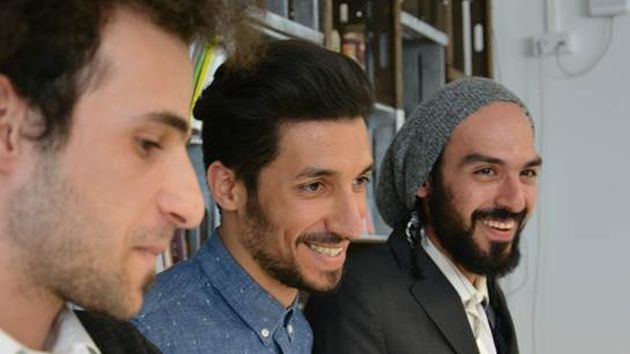How can refugees better connect with German companies and the training and jobs they offer? Employers have a lot of openings. However, many refugees are not able to take advantage of these opportunities that would help them integrate. How can this gap be overcome? Siemens Stiftung and the international educational platform DO School invited refugees to a three-week innovation workshop, where they formulated an innovative approach to enabling both sides to connect more effectively. Fifteen participants and more than 30 experts from the DO School took up the “Bridging Challenge” at the DO School’s campus in Berlin.
The main problem: the “Expectations Gap”
The results of the “Bridging Challenge” show that refugees and employers usually have differing expectations of each other. That means they need more than just successful initial contact between the two sides. The group proposes the following solution: Profee.
Profee, a solution approach developed by the participants themselves, is an online/offline application tool that enables refugees and employers to get to know each other gradually and build mutual trust and understanding. At every level of Profee, refugees and companies must accomplish tasks, both in the digital world and in personal dialog – such as self-assessment tests, video pitches or participation in networking events. The possibility of finding the right employer and employee increases with each level. On the basis of the self-assessment and a background verification process, particularly skilled refugees can also skip one or more levels and by doing so forge contact with potential employers faster.
Companies can support this process by letting employees who are able to give information on vacancies and further training opportunities take part in Profee or inviting them to act as voluntary mentors for refugees.
Reaching the objective in four stages:
In Level#1, the participants assess their language skills and give details of their expectations and qualifications. After completing this initial classification and depending on its result, the participants then accomplish specific tasks to enable the next level.
In Level#2, the refugees and employers upload simple videos in which they present themselves and thereby become part of a digital community.
In Level#3, selected refugees and employers meet at a networking event to get to know each other in person. The participants are encouraged to establish mentoring relationships. If they nurture these for a long time, they are given access to the next level.
In Level#4, the refugees are invited to a workshop where employers deal in depth with working culture and standards in Germany. At the same time, employees at the companies are trained by specially qualified coaches on how to avoid stereotypic thinking and prejudices.
How things go from here – companies need to step up to the plate
To make sure that it can live up to its mission to be a holistic solution, Profee will next undergo a requirements analysis by employers and other stakeholders. Companies’ requirements and synergies with existing measures are to be identified at a second workshop in July 2016. A dialog like this requires committed companies that contribute their experience, knowledge and needs, thereby helping ensure Profee is implemented quickly.



